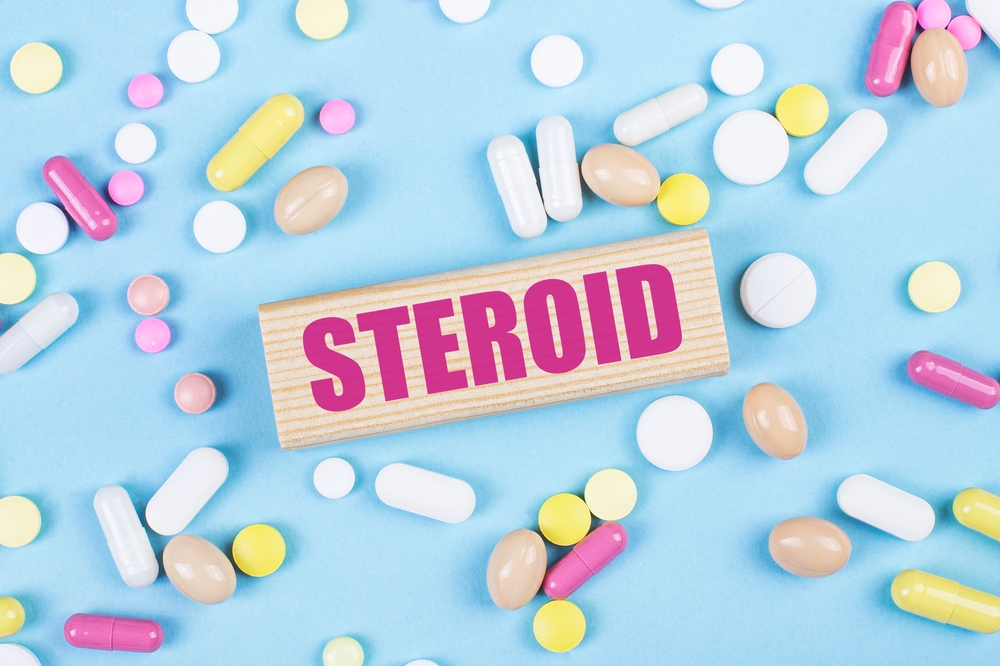Mark Kopec Now
Steroids
Medical Malpractice and the Misuse of Steroids
Steroids, a class of hormones produced by the adrenal glands, have been part of medicine for decades to treat a variety of conditions. While they can be highly effective when used appropriately, the misuse of steroids can lead to serious health complications and, in some cases, medical malpractice. The Kopec Law Firm provides this article to delve into the medical use of steroids, including their benefits, risks, and potential involvement in malpractice cases.

What Are Steroids?
Steroids are synthetic hormones that mimic the natural hormones produced by the adrenal glands. They are in two main categories: corticosteroids and anabolic steroids.
- Corticosteroids: These steroids are primarily used to reduce inflammation and also suppress the immune system. They are commonly prescribed to treat conditions such as:
- Allergies
- Asthma
- Autoimmune diseases (e.g., lupus, rheumatoid arthritis)
- Inflammatory bowel diseases (e.g., Crohn’s disease, ulcerative colitis)
- Adrenal insufficiency
- Certain skin conditions (e.g., eczema, psoriasis)
- Anabolic steroids: These are primarily used to build muscle mass and increase strength. They are often misused by athletes and bodybuilders to enhance performance. However, they have legitimate medical uses, such as:
- Treating muscle wasting conditions (e.g., cachexia, muscular dystrophy)
- Promoting bone growth in certain conditions (e.g., osteoporosis, Turner syndrome)
- Treating delayed puberty in boys
How Steroids Work
The specific mechanism of action varies depending on the type and the condition being treated. However, they generally work by:
- Reducing inflammation: Corticosteroids decrease the production of inflammatory substances, such as prostaglandins and leukotrienes, which can help reduce symptoms like pain, swelling, and redness.
- Suppressing the immune system: Corticosteroids can help suppress the immune system, which can be beneficial in autoimmune diseases where the body’s immune system attacks its own tissues.
- Promoting muscle growth: Anabolic steroids increase the production of testosterone, a hormone that stimulates muscle growth and development.
Who Prescribes Steroids?
Doctors typically prescribe steroids, including:
- Primary care physicians
- Allergists
- Rheumatologists
- Gastroenterologists
- Endocrinologists
- Dermatologists
In some cases, other healthcare providers, such as nurse practitioners or physician assistants, may prescribe steroids under the supervision of a physician.
Risks and Complications Associated with Steroid Use
While steroids can be effective in treating certain conditions, they also carry significant risks and complications. These include:
- Side effects: Common side effects of corticosteroids may include:
- Weight gain
- Mood changes
- High blood pressure
- Increased risk of infections
- Bone thinning
- Cataracts and glaucoma
- Increased risk of blood clots
- Dependency: Long-term use of corticosteroids can lead to dependence, making it difficult to stop taking the medication without experiencing withdrawal symptoms.
- Adrenal suppression: Prolonged use of corticosteroids can suppress the adrenal glands’ ability to produce natural cortisol, leading to adrenal insufficiency.
- Increased risk of heart disease: Anabolic steroids can increase the risk of heart disease, stroke, and liver damage.
Medical Malpractice and Steroid Misuse
When doctors prescribe steroids inappropriately, or when they do not monitor them properly, they can lead to serious health complications. In such cases, a healthcare provider may be liable for medical malpractice.
Medical malpractice occurs when a healthcare provider breaches their duty of care to a patient, resulting in harm. To prove medical malpractice, a patient must generally show that:
- A doctor-patient relationship existed.
- The healthcare provider breached their duty of care. This can include prescribing steroids inappropriately, failing to monitor the patient’s response to the medication, or failing to warn the patient about potential risks.
- The breach of duty caused the patient’s injury.
- The patient suffered damages as a result of the injury.
If a patient can prove these elements, then they may be able to recover damages for their medical expenses, lost wages, pain and suffering, and other losses.
Examples of Medical Malpractice:
- Overprescribing corticosteroids: Prescribing corticosteroids for a longer time or at a higher dosage than necessary can increase the risk of side effects and complications.
- Failing to monitor for side effects: Healthcare providers should monitor patients taking steroids for signs of side effects and adjust the dosage or treatment plan as needed.
- Failing to warn about risks: Doctors should inform patients about the potential risks of steroid use, including the risk of dependence, adrenal suppression, and other complications.
- Prescribing steroids for non-approved uses: Doctors should only prescribe anabolic steroids for approved medical conditions, such as muscle wasting diseases or delayed puberty. Their use for performance enhancement is illegal and can lead to serious health problems.
Conclusion
Steroids can be effective treatments for a variety of conditions, but patients must use them appropriately and under the supervision of a qualified healthcare provider. When steroids are misused or mismanaged, they can lead to serious health problems and, in some cases, medical malpractice. Patients who believe they have been harmed by the misuse of steroids should consult with an attorney who specializes in medical malpractice law.
If you have a potential medical malpractice case, then visit our free consultation page or video. Then contact the Kopec Law Firm at 800-604-0704 to speak directly with Attorney Mark Kopec. He is a top-rated Baltimore medical malpractice lawyer. The Kopec Law Firm is in Baltimore and pursues cases throughout Maryland and Washington, D.C.





